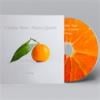
The Attacca Quartet provided the spark that lit a delayed fuse underneath the 2021 Ojai Festival in September, fizzing away with gusto on the second day of the festival. So then, what are we to make of their latest album, perhaps ironically titled Of All Joys (Sony Classical), that is as austere and inward as their Ojai set was lively and revved-up.

The album is a double-decker sandwich of 16th-17th-century music set off by layers of 20th-century minimalism, with two pieces by Arvo Pärt opening and closing the album, Philip Glass’s String Quartet No. 3 (“Mishima”) the centerpiece, and various Renaissance composers filling the two gaps. None of this music, save for the Glass, was specifically written for string quartet.
Pärt’s terse, plaintive Summa leads off the disc, the Attacca playing without vibrato as if this was written for period instruments. Then, with barely a pause for breath, they go right into Luca Marenzio’s Solo e pensoso — and if you’re not paying attention, you may not be aware of where Pärt ends and Marenzio begins, which, I suppose, is the point of the exercise. On they go through John Dowland’s Flow My Tears and Orlando Gibbons’s Fantasia in D Minor, dour exercises until some enlivening counterpoint turns up in the Gibbons.
We then enter the flowing river of Glassian minimalism in his “Mishima” Quartet, taken from his score for Paul Schrader’s 1985 film about the Japanese author/body builder/militia founder Yukio Mishima. Whether or not by accident, Glass’s default musical language in minor keys has proven to be endlessly adaptable to dark cinematic and theatrical situations, as it certainly was in this film. The Attacca foursome probes its dark side in a warmer, more emotional change of tone from the austerity of the surrounding Renaissance material.
Gregorio Allegri’s Miserere’s fame stems not so much for the piece itself as for the story that the 14-year-old Mozart wrote it down from memory after hearing a performance at the Vatican, even though it was forbidden to transcribe it. It’s a terrific piece with or without the colorful tale behind it, yet this string quartet transcription isn’t nearly as moving as the original scoring for nine-part choir — especially if the latter is heard in its home environment, the Sistine Chapel.
The dour mood resumes with John Bennet’s “Weep O Mine Eyes” and Jacobus Clemens non Papa’s “Ego flos campi” (I am the flower of the field) — and Pärt’s Fratres puts a mournful ecclesiastical seal on the set.
In the booklet notes, annotator Derek Robertson writes that Attacca violinist Domenic Salerni’s comments on the Glass piece can apply to the whole album, that the music “can leave one feeling resigned and despairing, uplifted and filled with joy, or simply at peace and transported to a place of beauty.” My reaction, frankly, was mostly the first feeling, not at all the second, and just a little bit of the third. Yours may be a different combination.




